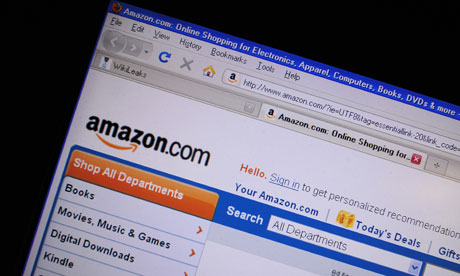
Thousands of ebooks from independent publishers have been removed from sale on Amazon.com after a clash over trading terms.
The Independent Publishers Group, the second largest independent book distributor in the United States, said in an update that "Amazon has decided not to offer our Kindle editions at this time. Our other electronic formats are available from booksellers nationwide." The removal of more than 4,000 Kindle ebooks, including IPG bestsellers Pamela Des Barres' groupie memoir I'm with the Band, child discipline title 1-2-3 Magic by Thomas Phelan and murder mystery Snow Blind by Lori Armstrong from Amazon.com follows the IPG's refusal to agree to new terms from online retail giant, according to its president Mark Suchomel.
"Amazon.com is putting pressure on publishers and distributors to change their terms for electronic and print books to be more favourable toward Amazon. Our electronic book agreement recently came up for renewal, and Amazon took the opportunity to propose new terms for electronic and print purchases that would have substantially changed your revenue from the sale of both," Suchomel told publishers in an email printed in the book trade newsletter Publishers Lunch.
"It's obvious that publishers can't continue to agree to terms that increasingly reduce already narrow margins," he continued. "I have spoken directly with many of our clients and every one of them agrees that we need to hold firm with the terms we now offer. I'm not sure what has changed at Amazon over the last few months that they now find it unacceptable to buy from IPG at terms that are acceptable to our other customers."
The titles are still for sale in their print formats on Amazon.com, and Suchomel urged publishers to let readers know about e-versions available elsewhere. "There is no better way to show our valued customers how much we appreciate doing business with them than to send orders their way," he wrote.
UK publisher Alma Books, which is distributed in America by the IPG, said it "100% supported" Suchomel's stance. "If Amazon came to us asking for 10-15% extra they would have a fight," said founder Alessandro Gallenzi. "It can never work if a party tries to bully another into submission."
The stand-off with the IPG follows a similar row in 2010, when the "buy new" button was removed from major Macmillan titles in the US after the publisher proposed new terms for ebooks. Amazon.com eventually capitulated, saying it would have to "accept Macmillan's terms because Macmillan has a monopoly over their own titles".
Macmillan is a major US player, publishing titles including Hilary Mantel's Booker prize-winning Wolf Hall and Naomi Klein's The Shock Doctrine. Although the IPG represents a wide range of publishers and titles, it lacks such big names. Gallenzi, though, believes it still has the clout to stand up to Amazon.
"The Amazon myth is one of almost endless availability," he said. "They have built their success on an illusion that you can get any book there, and cheaper than from their competitors. Throwing a spanner in the works with a big dispute like this one, when 4,000 books are not available to buy, will create a huge disruption. The consequences, even though the publishers are small, can hurt it very badly. I think that even a smallish distribution group can, and I hope will, stand up to them and fight. What is at stake is the ability of independent publishers to hold their own ground, and to still have a bit of control over pricing and their own margins."
Publishers are not the only part of the literary world at war with Amazon. After major US booksellers including Barnes & Noble and Books-A-Million said they would not be stocking Amazon Publishing titles earlier this month, last week American writers body the Authors Guild set out its stall in a fiery statement castigating the online retailer's business practices. Citing Amazon.com's "predatory pricing" and its "anticompetitive" tactics, the Guild said that "a truly competitive, open market has no indispensable player that can call the shots. The book publishing industry has such a player, and Amazon is poised and by all appearances eager to use its muscle to rip up the remaining physical infrastructure of book retailing and the vital book-browsing ecosystem it supports. If Amazon succeeds, the free market will have had little to do with it."
While its UK equivalent the Society of Authors would not go as far, deputy general secretary Kate Pool did say that Amazon's "dominance" was "worrying". "It could very easily mean the death of the high-street bookshop and that in my view would be extremely damaging to the entire industry," she said.

